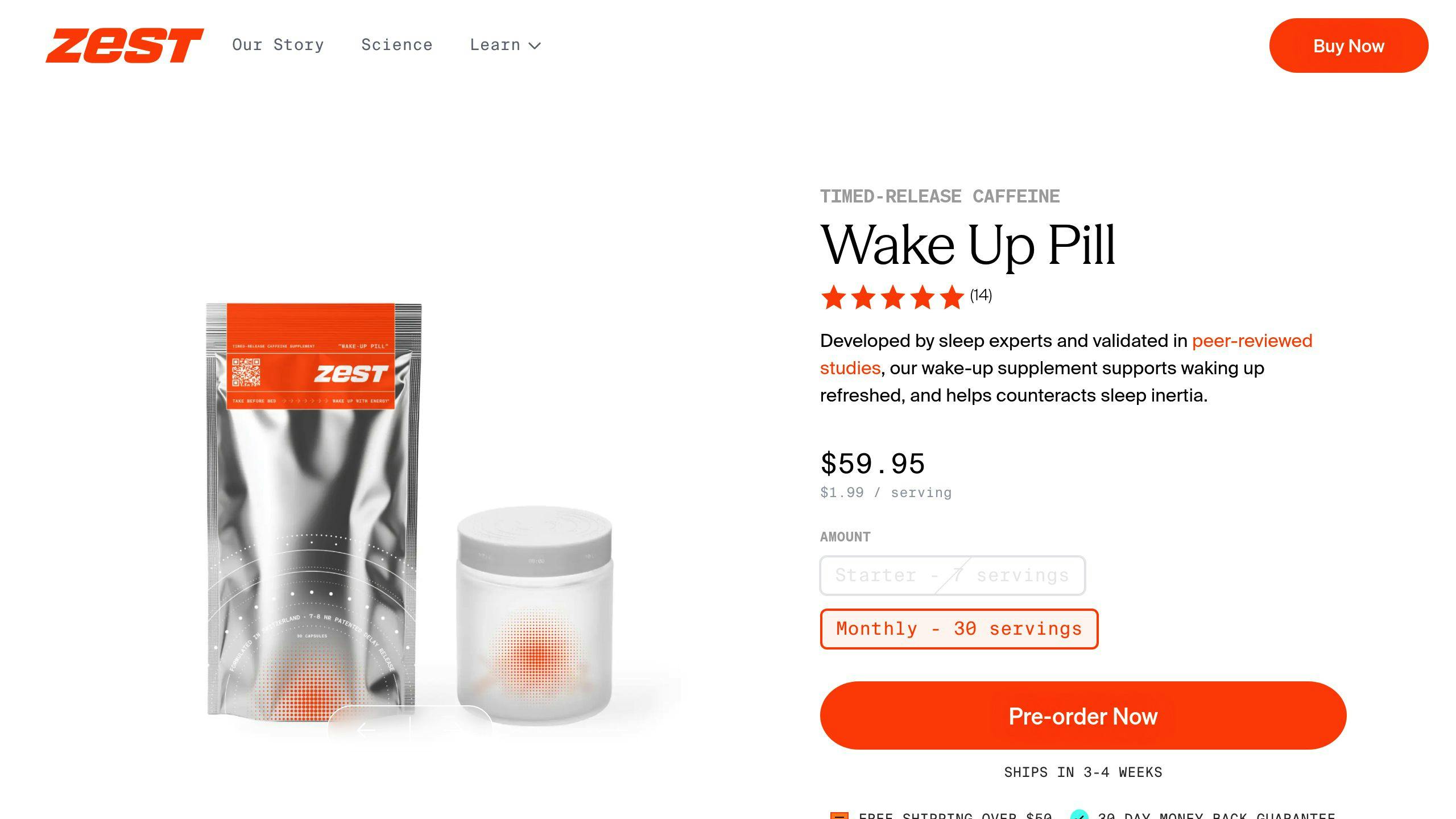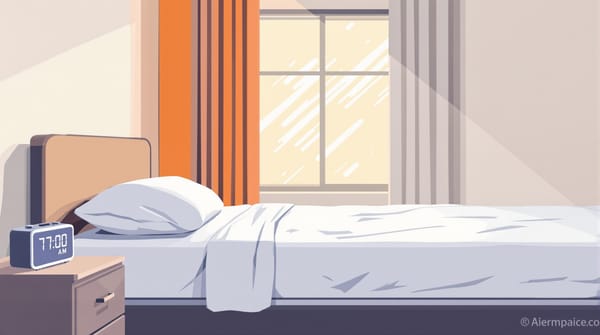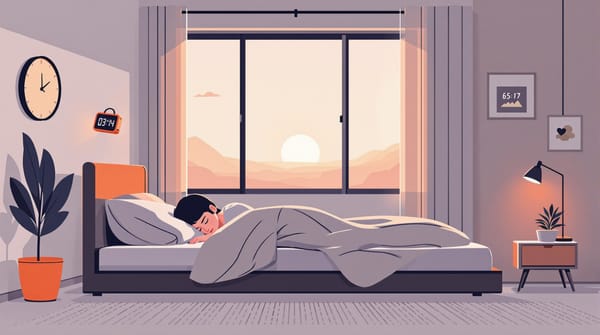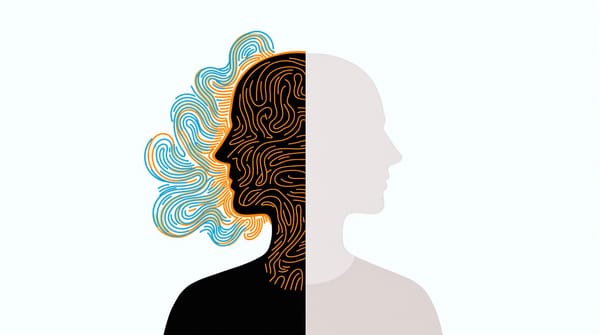Delayed-Release Caffeine vs Traditional Coffee: Key Differences
Explore the differences between delayed-release caffeine and traditional coffee, and discover which option suits your energy needs best.

Delayed-release caffeine offers steady energy over 4-6 hours, avoiding crashes and supporting better sleep. Coffee provides a quick energy boost within 15-30 minutes but may lead to energy dips and disrupted sleep if consumed late. Your choice depends on whether you need sustained focus or an immediate pick-me-up.
Quick Overview:
- Delayed-Release Caffeine: Gradual energy, fewer crashes, better for sleep.
- Coffee: Fast energy, social ritual, may disrupt sleep.
| Feature | Delayed-Release Caffeine | Coffee |
|---|---|---|
| Energy Timing | Gradual (4-6 hours) | Immediate (15-30 mins) |
| Peak Effect | Controlled | Peaks in 30-60 mins |
| Sleep Impact | Minimal | Can disrupt sleep |
| Duration | 6+ hours steady energy | 3-4 hours, possible crash |
| Best For | Long focus, better sleep | Quick boosts, workouts |
Choose delayed-release caffeine for smoother energy or coffee for fast results.
How Delayed-Release Caffeine Works
The Science Behind Delayed-Release Caffeine
Delayed-release caffeine uses a specialized system to gradually introduce caffeine into your bloodstream, offering steady energy over time. Unlike regular coffee, which delivers a quick jolt, this approach ensures a controlled and consistent release. Encapsulation technology enables caffeine to be released in sync with digestion, helping to avoid the sharp spikes and crashes often linked to traditional coffee consumption [1].
This gradual release helps maintain balanced energy levels, promoting focus and better sleep patterns [4].
Benefits of Delayed-Release Caffeine
Here’s what sets delayed-release caffeine apart from your regular cup of coffee:
| Benefit | What It Does | Why It Matters |
|---|---|---|
| Sustained Energy | Provides consistent energy without peaks and crashes | Keeps you energized throughout the day |
| Improved Focus | Supports steady cognitive performance | Boosts productivity and mental clarity |
| Supports Sleep | Minimizes disruption to your sleep cycle | Encourages a healthier sleep routine |
| Controlled Dosage | Helps adhere to EFSA's 200mg per serving guideline | Reduces the risk of overconsumption |
A study in the Journal of the International Society of Sports Nutrition found that this controlled-release method significantly boosts cognitive function and alertness over extended periods [1]. These features make delayed-release caffeine an appealing alternative for those seeking smoother, more consistent energy.
Example Product: Zest Labs Wake-Up Pill

One standout example of this technology in action is the Wake-Up Pill from Zest Labs. Designed to release caffeine 7-8 hours after ingestion, it helps combat morning sluggishness by syncing with your natural wake-up cycle. Alongside caffeine, the formula includes nutrients like Vitamin B5, B12, and Zinc, ensuring you wake up feeling naturally refreshed and ready to tackle the day.
How Coffee Affects Energy
How Caffeine Provides a Quick Boost
Coffee is well-known for its ability to provide a fast energy boost, thanks to caffeine. Once you drink it, the caffeine enters your bloodstream quickly, with effects kicking in as soon as 15 minutes and peaking between 30 to 60 minutes after consumption [2]. The average eight-ounce cup of coffee has about 95 milligrams of caffeine, though this amount can vary depending on the type of beans and brewing method used [3].
Caffeine works by blocking chemicals in your brain that promote sleep, while also increasing the activity of dopamine and norepinephrine - chemicals linked to alertness. This combination is what creates that "wake-up" feeling so many rely on in the morning.
| Coffee Type | Caffeine Content (mg) | Peak Effect Time |
|---|---|---|
| Regular Drip | 95-200 | 30-60 minutes |
| Cold Brew | 150-240 | 30-60 minutes |
While this quick energy boost can be helpful, it’s not without its drawbacks, especially when it comes to maintaining energy levels and supporting healthy sleep patterns.
Impact on Sleep and Energy Levels
Although coffee provides an initial surge of energy, it can also lead to an energy crash later in the day. This is one reason many people experience the dreaded "afternoon slump" [1]. For some, switching to delayed-release caffeine can offer steadier energy without the same risk of disrupting sleep.
Caffeine’s effects can last for several hours, depending on how your body processes it. Drinking coffee late in the day can interfere with your natural sleep patterns, potentially creating a cycle of poor sleep and an increased dependence on caffeine. To avoid these issues, it’s recommended to stick to a daily caffeine limit of 400-500 milligrams, as exceeding this can lead to side effects like jitters or insomnia [2].
For better energy balance and fewer sleep disruptions, try drinking coffee earlier in the day, staying within the recommended caffeine limit, and paying attention to how your body reacts to it.
Comparing Delayed-Release Caffeine and Coffee
Energy Timing and Release
Coffee provides a quick energy boost, but delayed-release caffeine ensures a steady flow of energy lasting 4-6 hours. This steady release keeps energy levels consistent, avoiding the rapid highs and lows often associated with coffee.
For example, Zest Labs' Wake-Up Pill is designed to release caffeine gradually, helping to prevent the afternoon slump that coffee drinkers often experience.
The timing of caffeine release also plays a key role in supporting healthy sleep patterns, making delayed-release caffeine an appealing option for many.
Impact on Sleep and Wake Cycles
Delayed-release caffeine aligns with natural sleep-wake cycles, reducing grogginess in the morning without interfering with sleep later on. By releasing caffeine in a controlled manner, it helps maintain better sleep habits compared to the potential disruptions caused by traditional coffee.
Best Fit for Different Lifestyles
Your choice between delayed-release caffeine and coffee depends on your routine and energy needs. Delayed-release caffeine is ideal for:
- Early risers who need energy to last throughout the day
- Busy professionals juggling demanding schedules
- Athletes needing a quick energy boost before morning workouts
- Students looking for wake-up solutions for early morning classes
- People prone to energy crashes
- Those who struggle with grogginess in the morning
On the other hand, coffee is better suited for:
- Daytime usage
- Social settings
- Occasional caffeine users
The decision comes down to whether you value sustained energy and better sleep or prefer a fast-acting energy boost.
Comparison Table
| Feature | Delayed-Release Caffeine | Traditional Coffee |
|---|---|---|
| Energy Release | Gradual over 4-6 hours | Immediate (15-30 minutes) |
| Peak Effect | Controlled and sustained | Peaks within 30-60 minutes |
| Sleep Impact | Minimal when timed well | Can disrupt sleep if consumed late |
| Duration | Steady energy for 6+ hours | 3-4 hours with potential crash |
| Recommended Use | Early morning or before bed | Morning or early afternoon |
| Daily Limit | 200mg per dose (EFSA guidelines) | 400mg total daily (EFSA guidelines) |
This table highlights the strengths of each option. Delayed-release caffeine offers long-lasting energy and better sleep support, while coffee is great for quick bursts of focus and alertness. Knowing these differences can help you pick the right option for your lifestyle and energy needs.
Key Points to Remember
When comparing delayed-release caffeine to traditional coffee, here’s what stands out:
- Delayed-release caffeine offers a steady energy flow for 4-6 hours, working in sync with your natural rhythms and avoiding the crashes often linked with coffee.
- Traditional coffee provides a quick energy spike within 15-30 minutes but might interfere with sleep if consumed too late in the day.
The delayed-release option is also known for enhancing focus and alertness for several hours [1]. Choosing the right caffeine source can help maintain your energy levels while respecting your sleep patterns.
What’s the Best Choice for You?
Deciding between these options depends on your lifestyle and energy needs.
Delayed-release caffeine might work best if you:
- Want consistent energy without mid-afternoon crashes
- Have trouble shaking off morning grogginess
- Are sensitive to caffeine's impact on sleep
Traditional coffee could be ideal if you:
- Prefer a fast energy boost
- Enjoy the ritual and social aspects of coffee
- Can manage your intake to avoid sleep-related issues
You don’t have to choose just one. Combining both approaches can be effective - just start with a small amount to understand how your body reacts [1][2].
FAQs
Here are some common questions about delayed-release caffeine and how it compares to traditional coffee.
How does delayed-release caffeine work?
Delayed-release caffeine uses a special coating to release caffeine gradually over several hours. Unlike the quick jolt from traditional coffee, this method delivers a steady energy boost, helping you maintain consistent energy levels throughout the day.
What's the difference in energy release timing?
Traditional coffee usually peaks within 30-60 minutes after consumption. In contrast, delayed-release caffeine provides a steady release over several hours, with up to 80% released within six hours. For instance, Zest Labs' Wake-Up Pill is designed to align with your natural wake cycles, offering smoother morning energy.
When should I choose delayed-release over traditional coffee?
Delayed-release caffeine may be a better choice if you:
- Need steady energy during long workouts or training sessions
- Want consistent focus during a full workday
- Plan to study for extended hours
- Are sensitive to the quick energy spikes from regular coffee
Are there any side effects to consider?
Start with a small dose and see how your body reacts. Stick to products from reputable brands that follow strict quality standards. Avoid taking multiple doses too close together, as the effects can build up over time.
Keep in mind that both traditional coffee and delayed-release caffeine can disrupt sleep if consumed too late in the day. However, delayed-release options tend to offer more predictable energy patterns [1][2].





